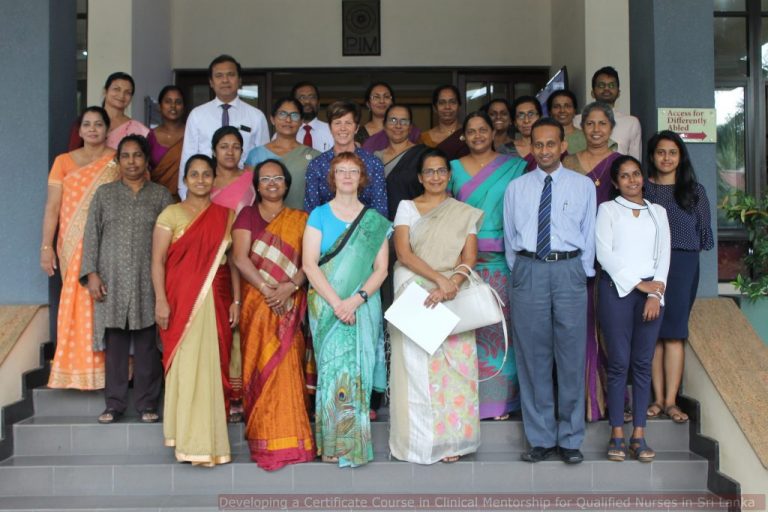
A recent project has spearheaded the development of a mentorship education programme for nurses in Sri Lanka.
Mentorship is a well-established practice for supporting student nurses on clinical placements in most developing countries. However, it is currently not formally undertaken or recognised in Sri Lanka, which potentially impacts negatively on students’ experiences and learning. As well as dissatisfaction for learners, this also has implications for care quality and patient safety.
Elaine Hill and Adele Nightingale, Senior Lecturers in the School of Sport and Health Sciences, have collaborated with practitioners from the UK and Sri Lanka to devise a mentorship education programme for Sri Lankan nurses. Crucial to the success of this project was using UK colleagues’ knowledge and skills to support the Sri Lankan partners to design a programme tailored to their needs. This has now been approved by the Sri Lankan Ministry of Health and will be piloted in 2020. There were several stages to the programme’s
development. To better understand how mentorship education works in the UK, a Sri Lankan nursing researcher shadowed UCLan staff as they carried out mentorship teaching. Research involving qualified nurses and students was undertaken in association with the Institute for Research and Development in Sri Lanka and this informed the design of the resulting programme. The intention is for this to become a registered, nationally-recognised award. There are also plans for a ‘train the trainer’ programme to ensure that delivery is sustainable in the long-term. Papers and conference presentations are also in progress.
The programme is expected to bring about sustained benefits for the educational experience of trainee nurses in Sri Lanka, ultimately leading to positive improvements in patient care. The project contributes to a number of the Sustainable Development Goals (SDGs) which were outlined by the United Nations in 2015 with a view to achieving “a better and more sustainable future for all” by 2030. The introduction of mentorship as a crucial component of clinical training aims to increase the quality and safety of care (SDG #3) and reduce gender inequality (SDG #5) by challenging traditional power differentials between nurses (mostly female) and doctors (mostly male). The work will also address the Nursing Now campaign goals which Sri Lanka committed to in October 2018 as well as supporting the country’s entry into the global nursing careers market and the development and delivery of postgraduate nursing qualifications.
University of Central Lancashire. (October 2019). Developing a Mentorship Education Programme for Nurses in Sri Lanka. Addressing Global Challenges: QR Global Challenges Research Fund projects. Web Post. Retrieved from https://www.uclan.ac.uk/research/news_and_events/global-challenges.php
